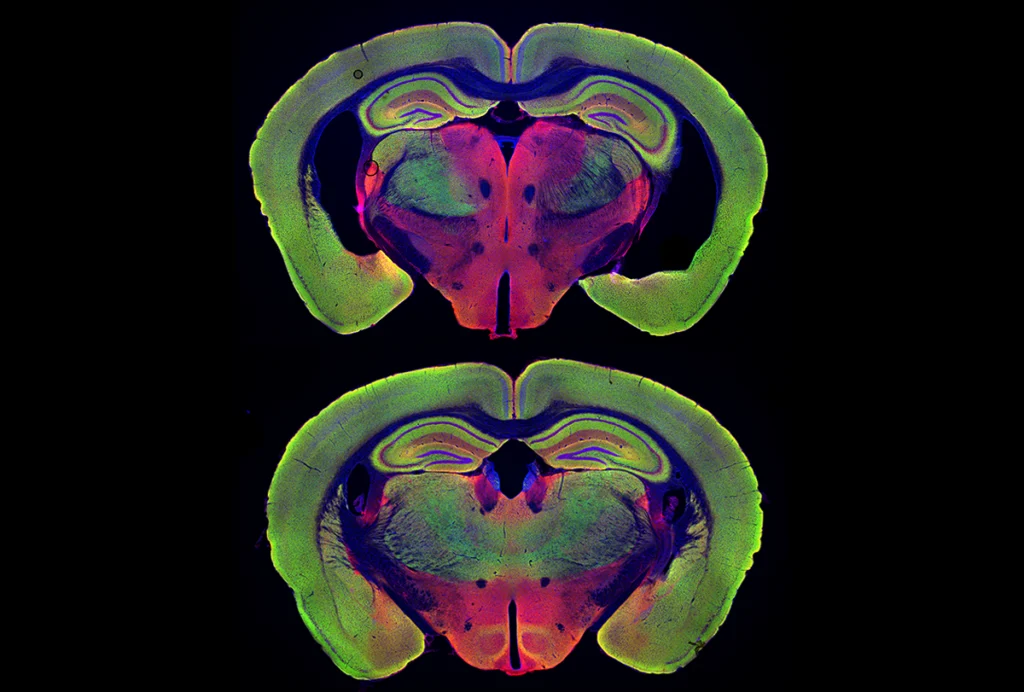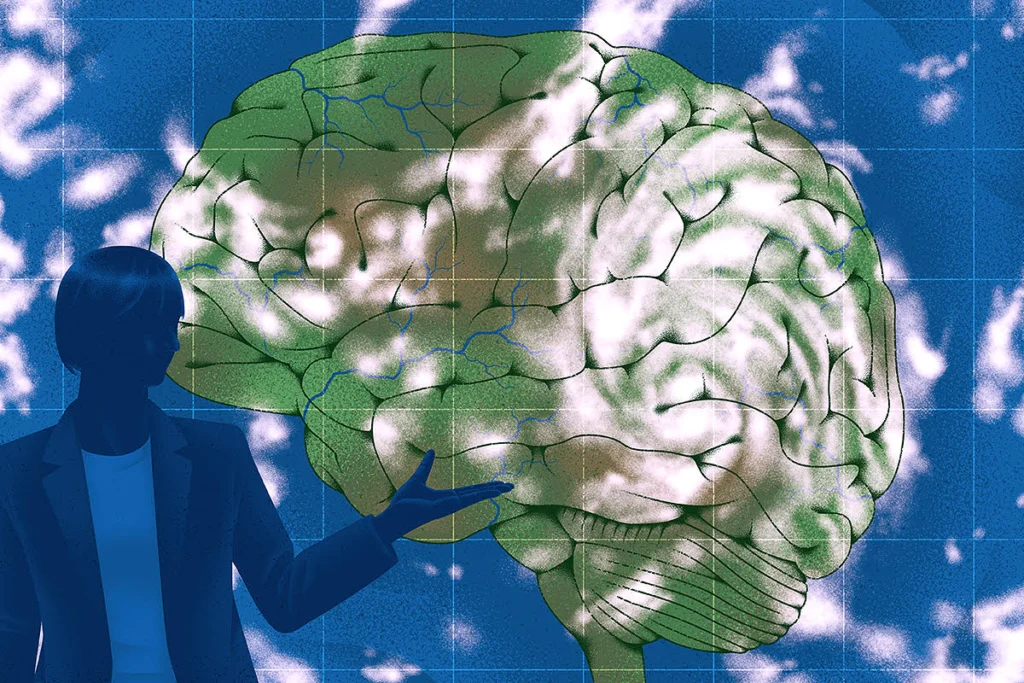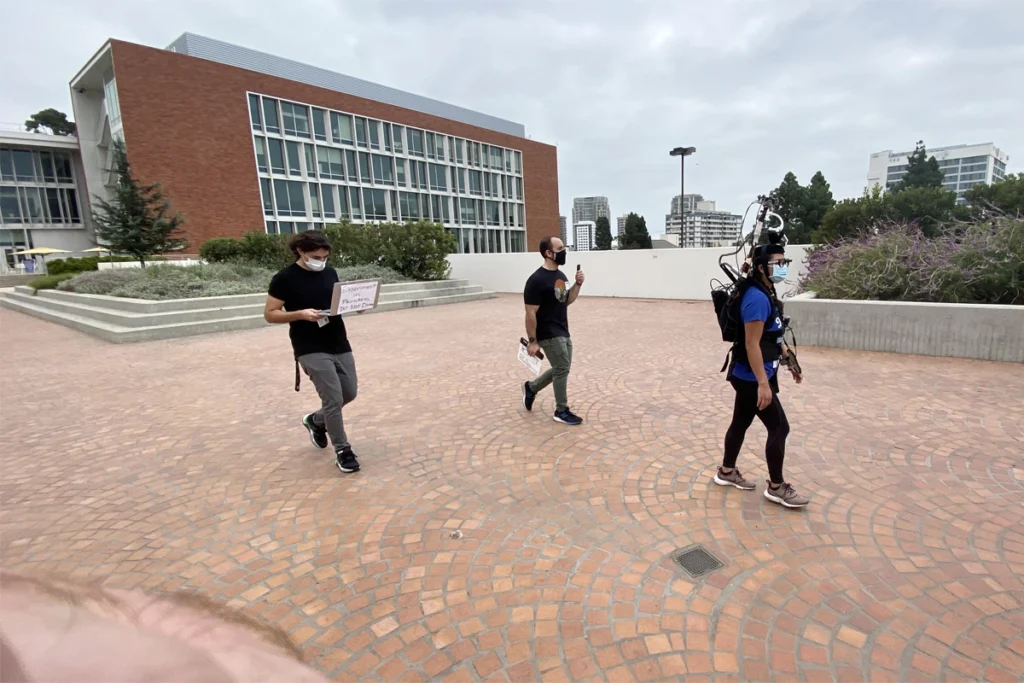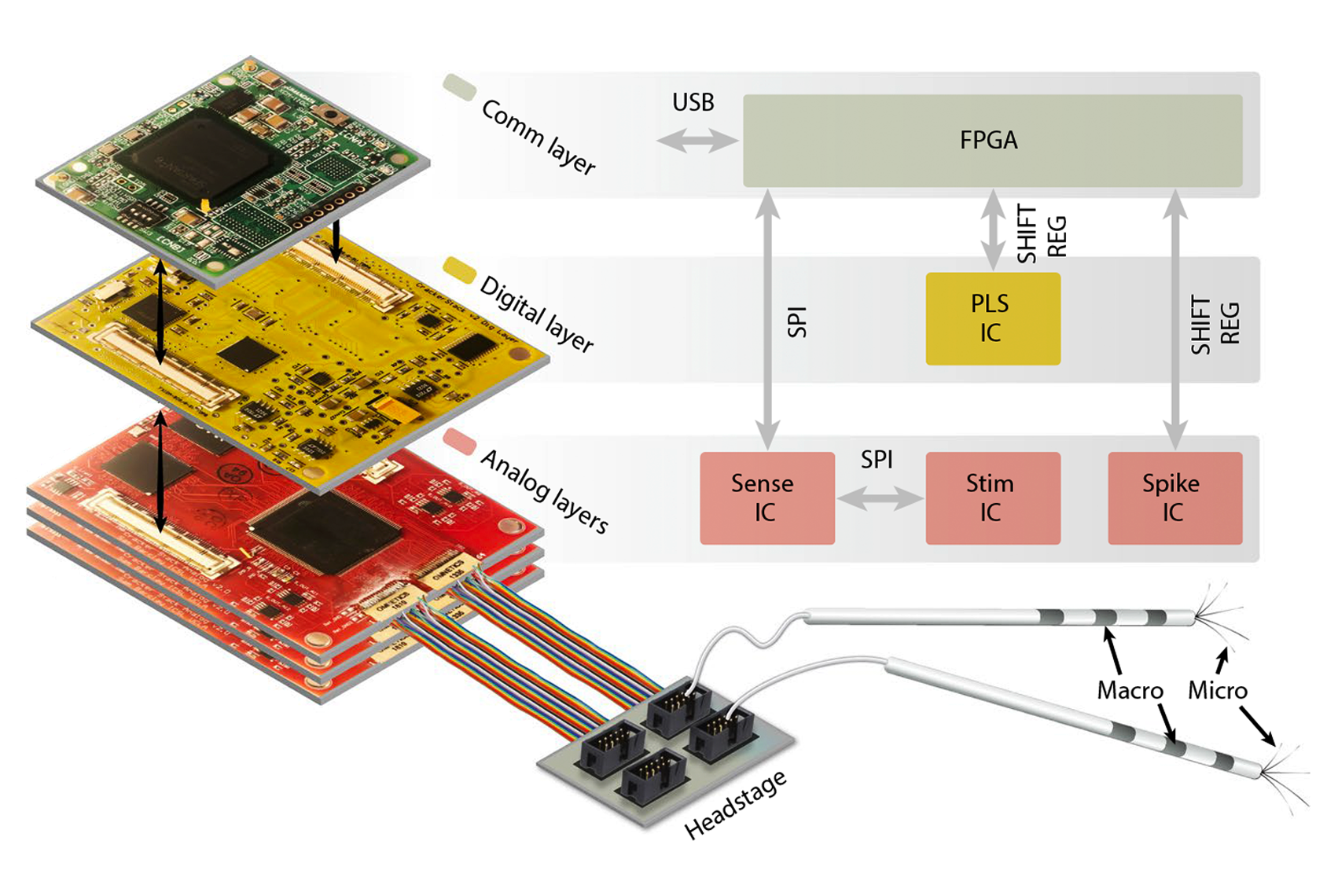Brain stimulation
Recent articles
Stimulating the brain with Damien Fair
The MacArthur Foundation “genius” discusses his return to his home state of Minnesota and why it’s important to protect the developing brain.

Stimulating the brain with Damien Fair
The MacArthur Foundation “genius” discusses his return to his home state of Minnesota and why it’s important to protect the developing brain.
Say what? The Transmitter’s top quotes of 2024
“We’ve cured mouse-heimer’s thousands of times...”—find out who said this to a Transmitter reporter, and read our other favorite quotes from the past year.

Say what? The Transmitter’s top quotes of 2024
“We’ve cured mouse-heimer’s thousands of times...”—find out who said this to a Transmitter reporter, and read our other favorite quotes from the past year.
Putting a bright idea to the test
A surprising wave of findings in mice suggests that light and sound flickering at 40 hertz clears the brain of Alzheimer’s-disease-linked plaques. Several companies are hoping to prove it works in people.

Putting a bright idea to the test
A surprising wave of findings in mice suggests that light and sound flickering at 40 hertz clears the brain of Alzheimer’s-disease-linked plaques. Several companies are hoping to prove it works in people.
From a scientist’s perspective: The Transmitter’s top five essays in 2023
From big-picture debates about theories and terms to practical tips for teaching and writing, our favorite expert-written articles offer a glimpse into what neuroscientists are thinking.

From a scientist’s perspective: The Transmitter’s top five essays in 2023
From big-picture debates about theories and terms to practical tips for teaching and writing, our favorite expert-written articles offer a glimpse into what neuroscientists are thinking.
Is the brain uncontrollable, like the weather?
The brain may be chaotic. Does that mean our efforts to control it are doomed?

Is the brain uncontrollable, like the weather?
The brain may be chaotic. Does that mean our efforts to control it are doomed?
‘Into the wild’: Moving studies of memory and learning out of the lab
People with electrodes embedded deep in their brain are collaborating with a growing posse of plucky researchers to uncover the mysteries of real-world recall.

‘Into the wild’: Moving studies of memory and learning out of the lab
People with electrodes embedded deep in their brain are collaborating with a growing posse of plucky researchers to uncover the mysteries of real-world recall.
Wearable device records, stimulates single neurons in people on the go
The tool connects to electrodes implanted in people with epilepsy or other brain conditions and can monitor and regulate neurons during everyday activities.

Wearable device records, stimulates single neurons in people on the go
The tool connects to electrodes implanted in people with epilepsy or other brain conditions and can monitor and regulate neurons during everyday activities.
Explore more from The Transmitter
During decision-making, brain shows multiple distinct subtypes of activity
Person-to-person variability in brain activity might represent meaningful differences in cognitive processes, rather than random noise.

During decision-making, brain shows multiple distinct subtypes of activity
Person-to-person variability in brain activity might represent meaningful differences in cognitive processes, rather than random noise.
Basic pain research ‘is not working’: Q&A with Steven Prescott and Stéphanie Ratté
Prescott and Ratté critique the clinical relevance of preclinical studies in the field and highlight areas for improvement.

Basic pain research ‘is not working’: Q&A with Steven Prescott and Stéphanie Ratté
Prescott and Ratté critique the clinical relevance of preclinical studies in the field and highlight areas for improvement.
Proposed NIH budget cut threatens ‘massive destruction of American science’
A leaked draft of a Trump administration proposal includes an approximately 40 percent cut to the National Institutes of Health’s budget and a major reorganization of its 27 institutes and centers.

Proposed NIH budget cut threatens ‘massive destruction of American science’
A leaked draft of a Trump administration proposal includes an approximately 40 percent cut to the National Institutes of Health’s budget and a major reorganization of its 27 institutes and centers.